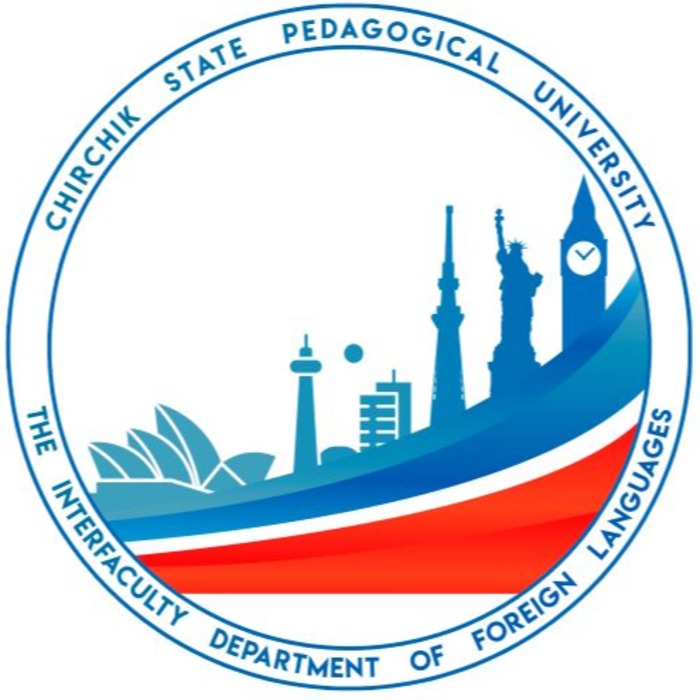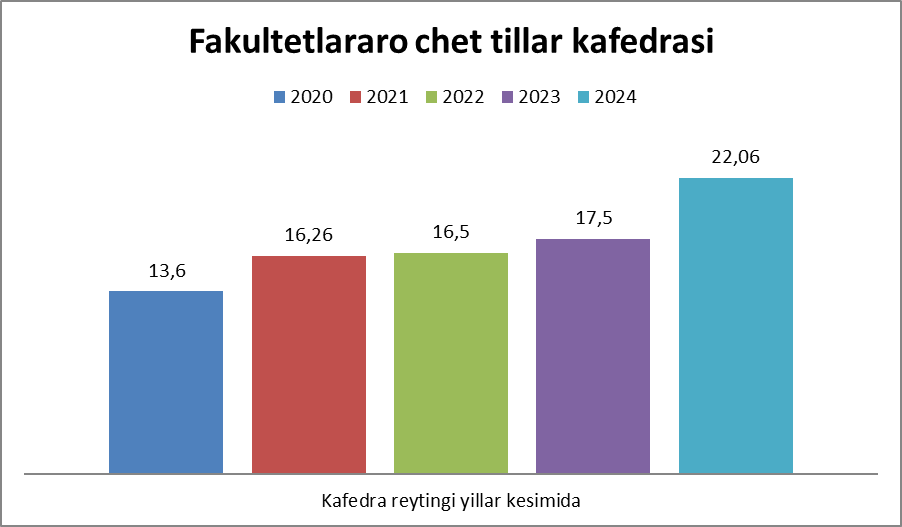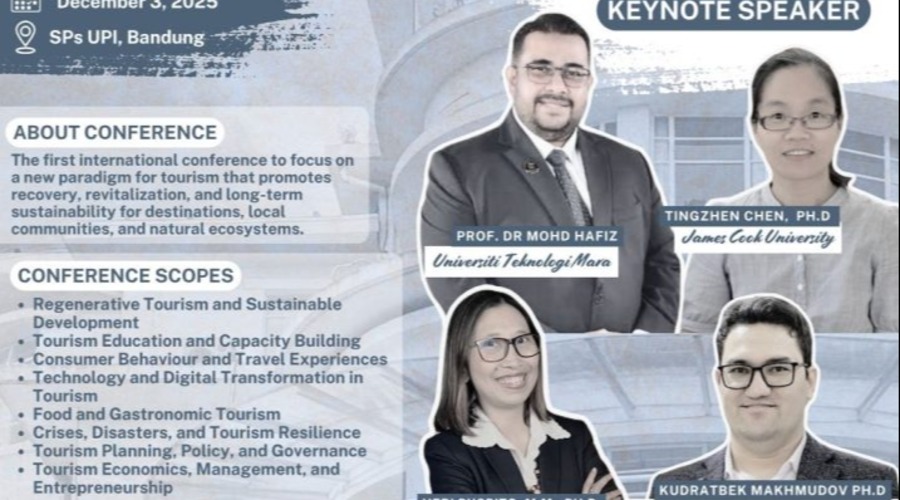Advancing the methodology of teaching English as a foreign language is one of the department’s priorities. Particular attention is paid to developing lexical competences (N.Baltaeva), fostering critical thinking skills (Z.Juraeva), and improving self-directed learning approaches (N.Saitkulova). In addition, effective work has been carried out to enhance the educational process through psycholinguistic approaches (F.Djabbarova).
Interfaculty Department of Foreign Languages
Interfaculty Department of Foreign Languages
The Interfaculty Department of Foreign Languages was established on 27 August 2019 by Resolution No. 1 of the Council of the Chirchik State Pedagogical Institute of the Tashkent Region. Previously operating within the “Foreign Languages” department, it later became an independent department. Today, the department teaches English as a foreign language for non-English majors.
The main objective of the Interfaculty Department of Foreign Languages is to develop students’ advanced English language skills and to foster intercultural communication competence.
- Enhancing the quality of English language teaching through profession-oriented programs and advanced pedagogical methods.
- Expanding international cooperation by establishing partnerships with universities, the academic community, and educational projects.
- Developing a research-oriented environment to become an innovative center for language learning, philological, and pedagogical research.
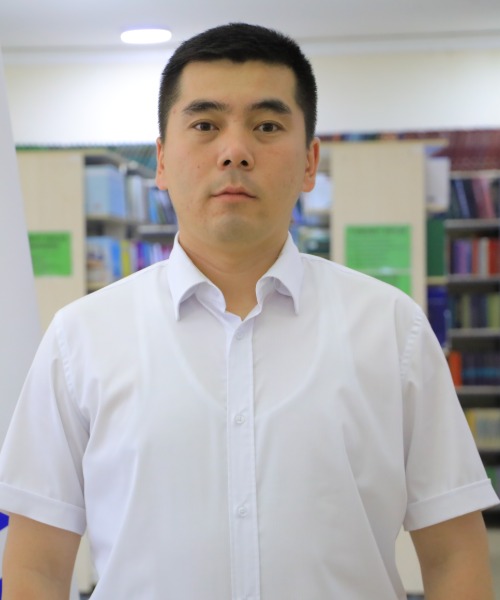
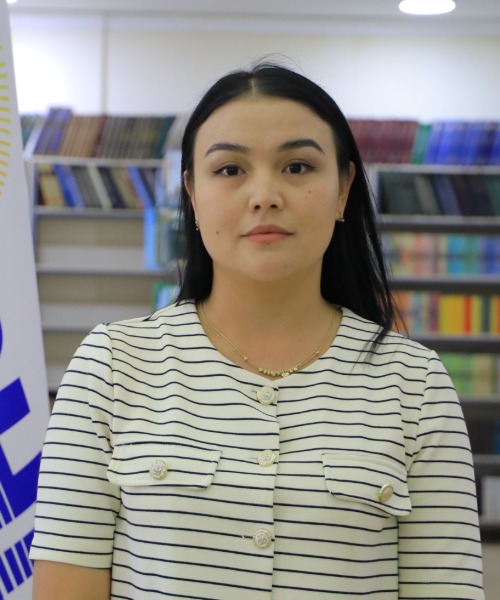
Baltayeva Nodira Timur qizi
Kafedra o‘qituvchisi
- Phone: +998974408300
- Email n.baltayeva@cspu.uz
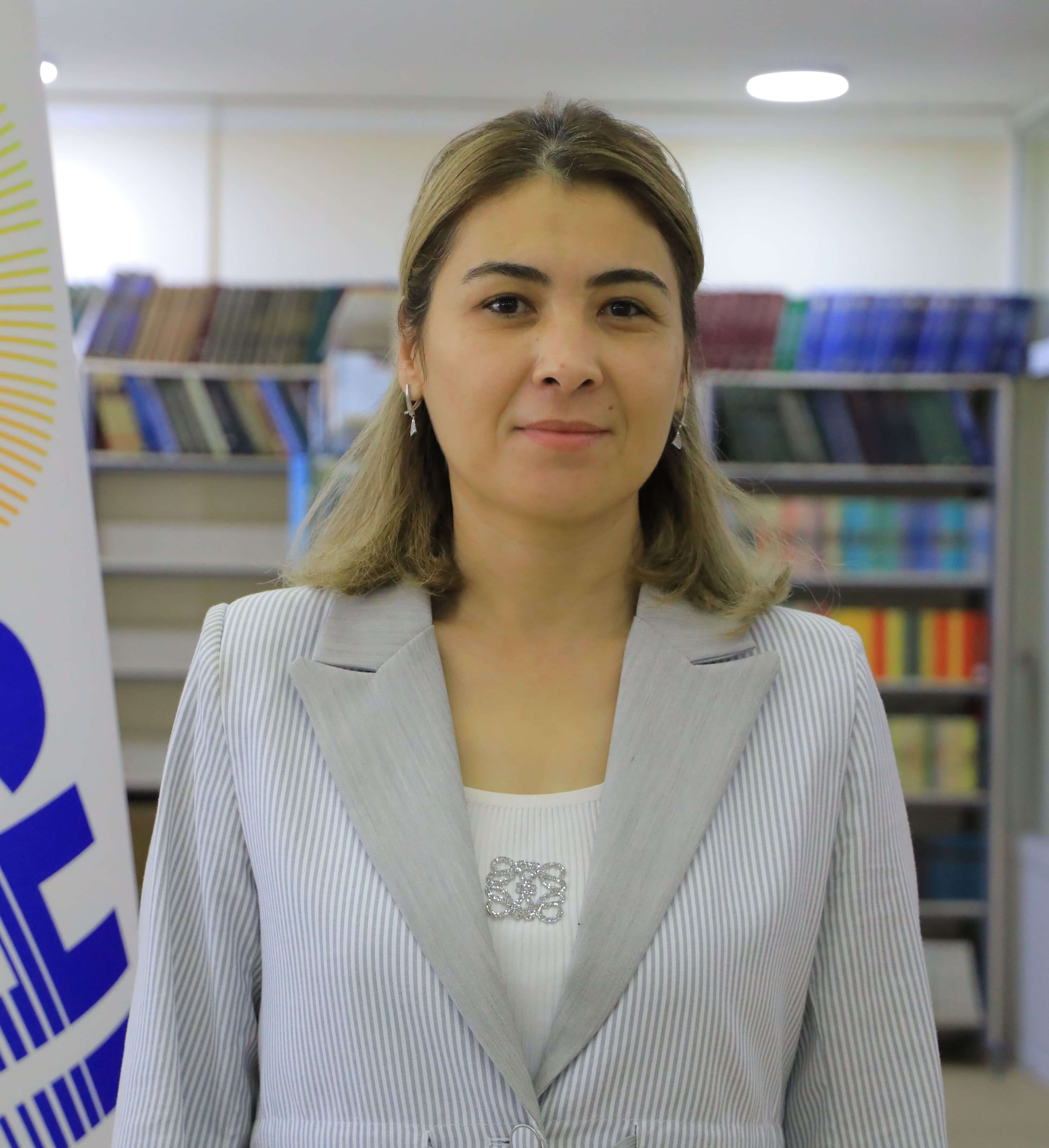
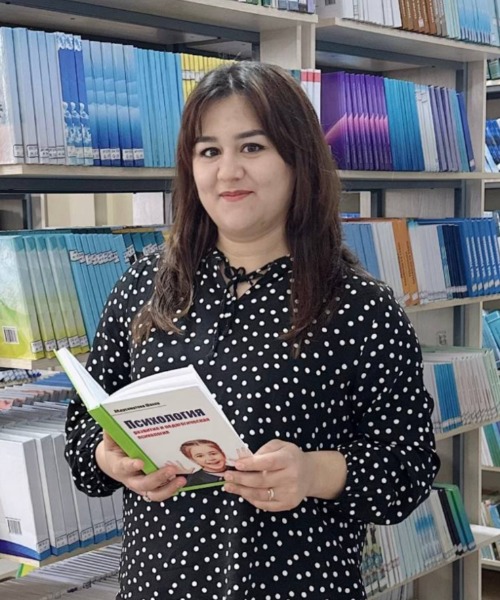
Jo‘rayeva Zuhra Kamoliddin qizi
Kafedra o‘qituvchisi
- Phone: +998999281338
- Email z.jorayeva@cspu.uz

Kamalova Rufina Rustamjon qizi
Kabinet mudiri
- Phone: +998717166805
- Email tursunaliyevarufina@gmail.com
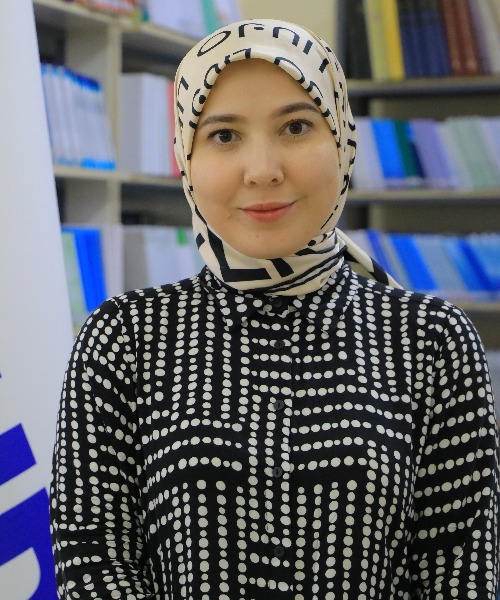
Maxamatxo‘jayeva Go‘zal Ulug‘bek qizi
Kafedra o‘qituvchisi (English language)
- Phone: +998977189998
- Email g.maxamatxojayeva@cspu.uz
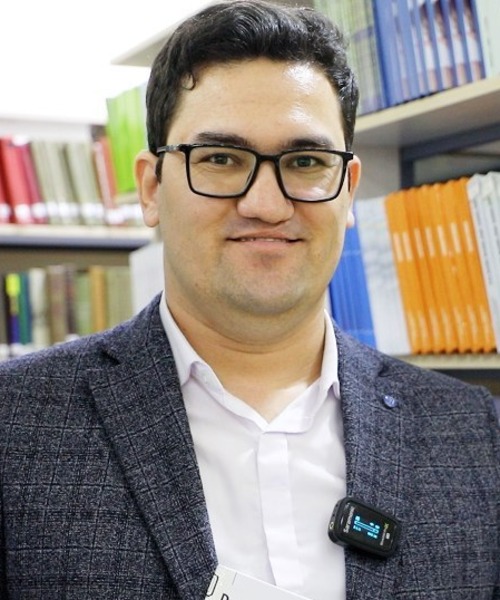
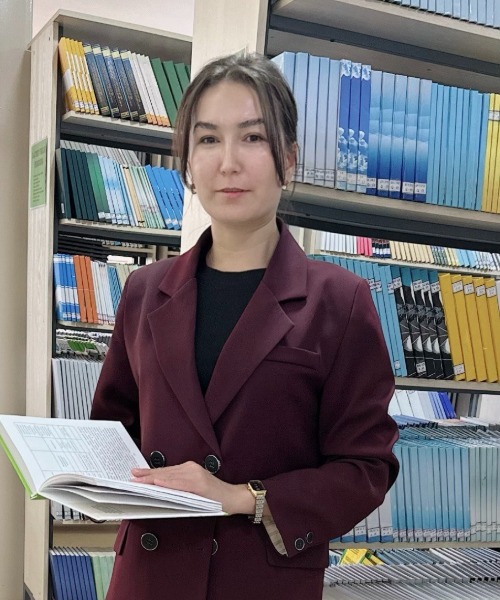
Nabiyeva Asalxon Ulug‘bek qizi
Kafedra o‘qituvchisi
- Email a.nabiyeva@cspu.uz
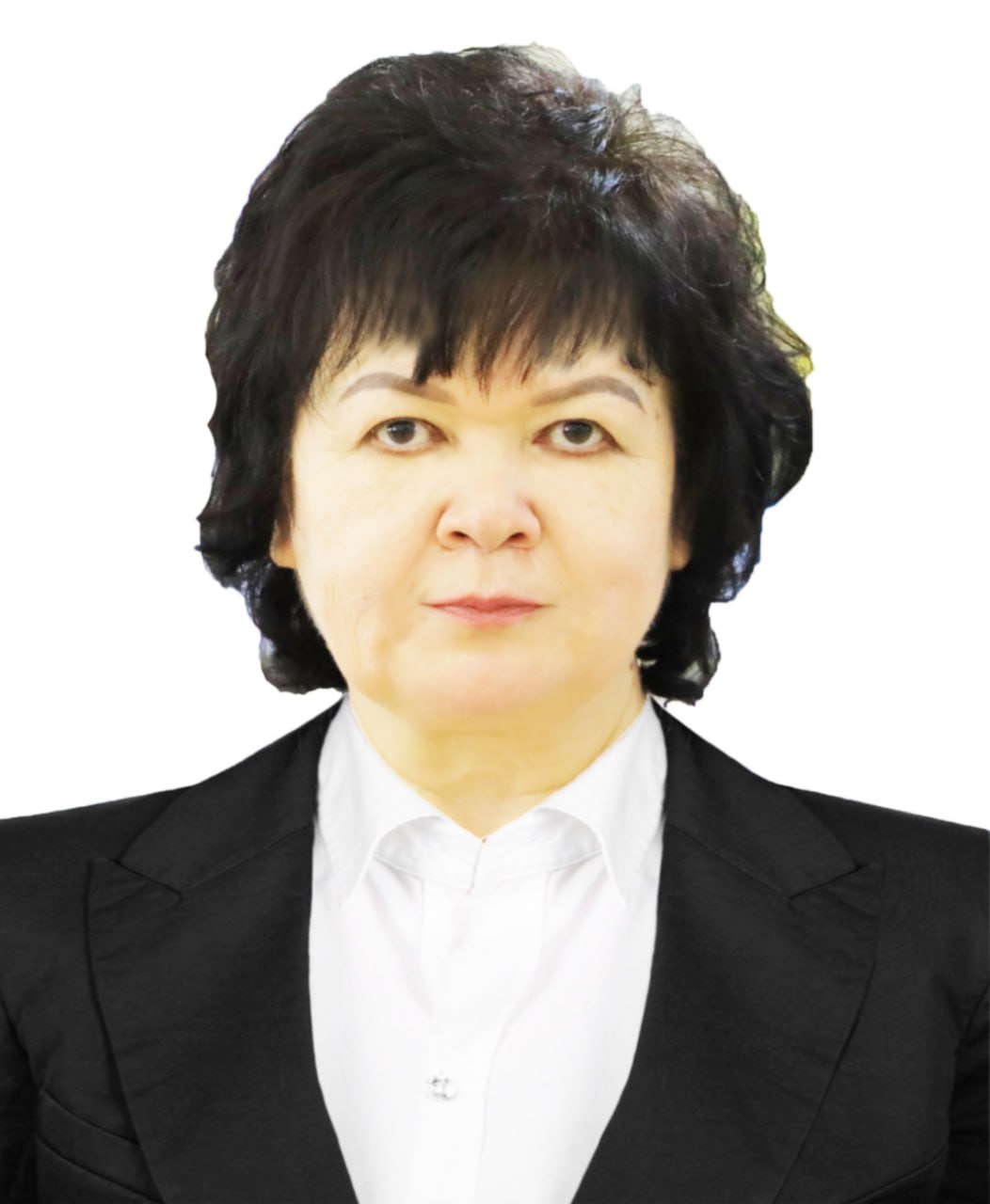
Orazova Firyuza Orazovna
Kafedra o‘qituvchisi
- Phone: +998917779355
- Email f.orazova@cspu.uz
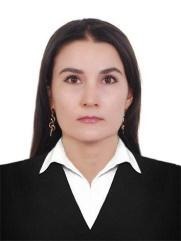
Otajonova Dildor Baxtiyarovna
Kafedra Dotsenti
- Phone: +998978725492
- Email d.otajonova@cspu.uz
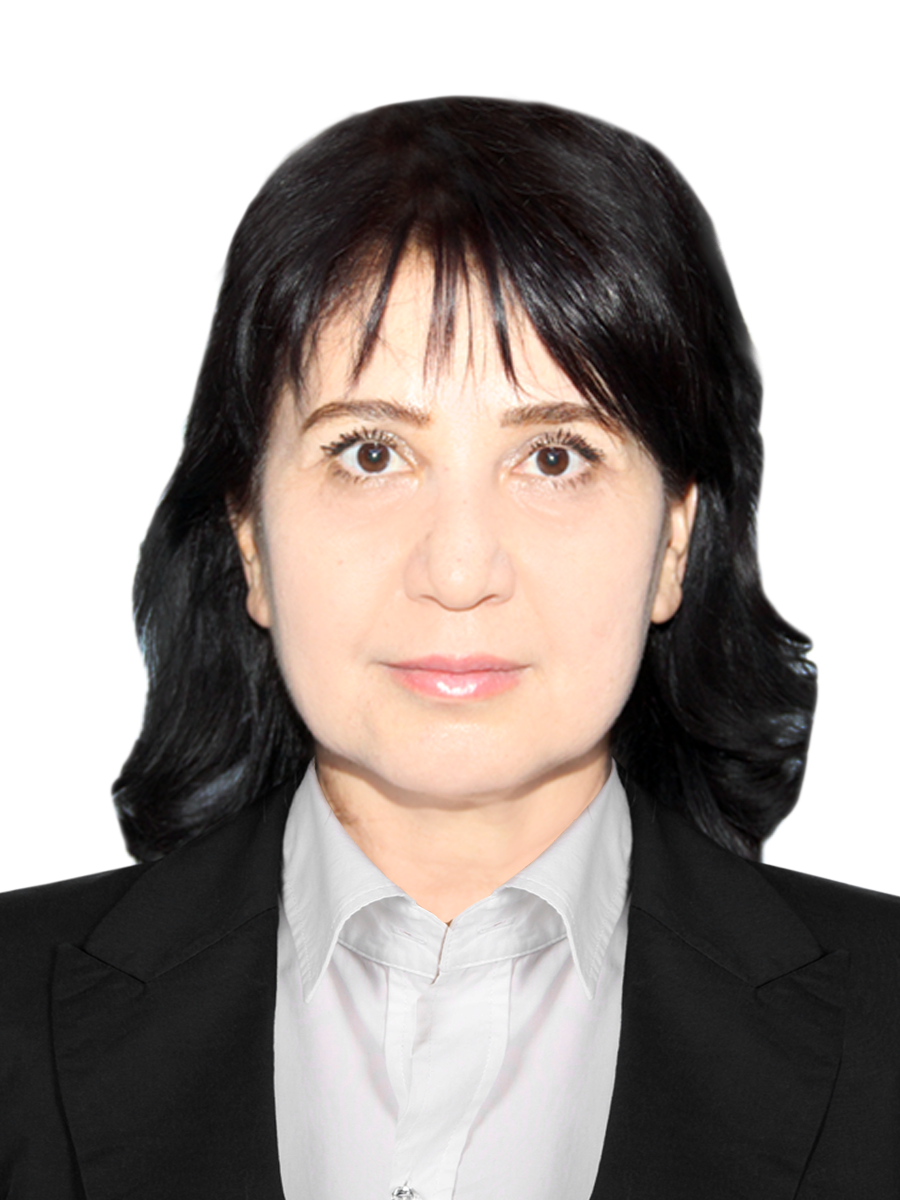
Saitkulova Nazokat Raxmonovna
Kafedra Dotsenti
- Phone: +998994062806
- Email saitkulovanazokat@gmail.com
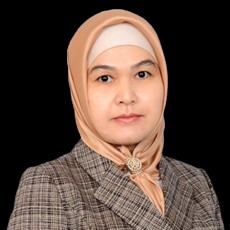
Samadova Svetlana Jontoshevna
Katta o‘qituvchi
- Phone: +998 91 775 39 97
- Email s.samadova@cspu.uz
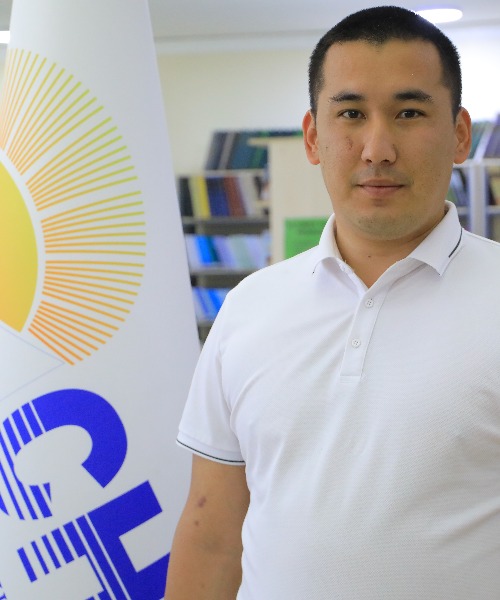
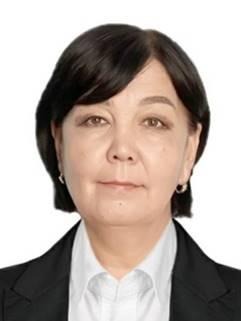
Xaldarchayeva Gauxar Serikbayevna
Katta o‘qituvchi
- Phone: +998717166805
- Email g.xaldarchayeva@cspu.uz
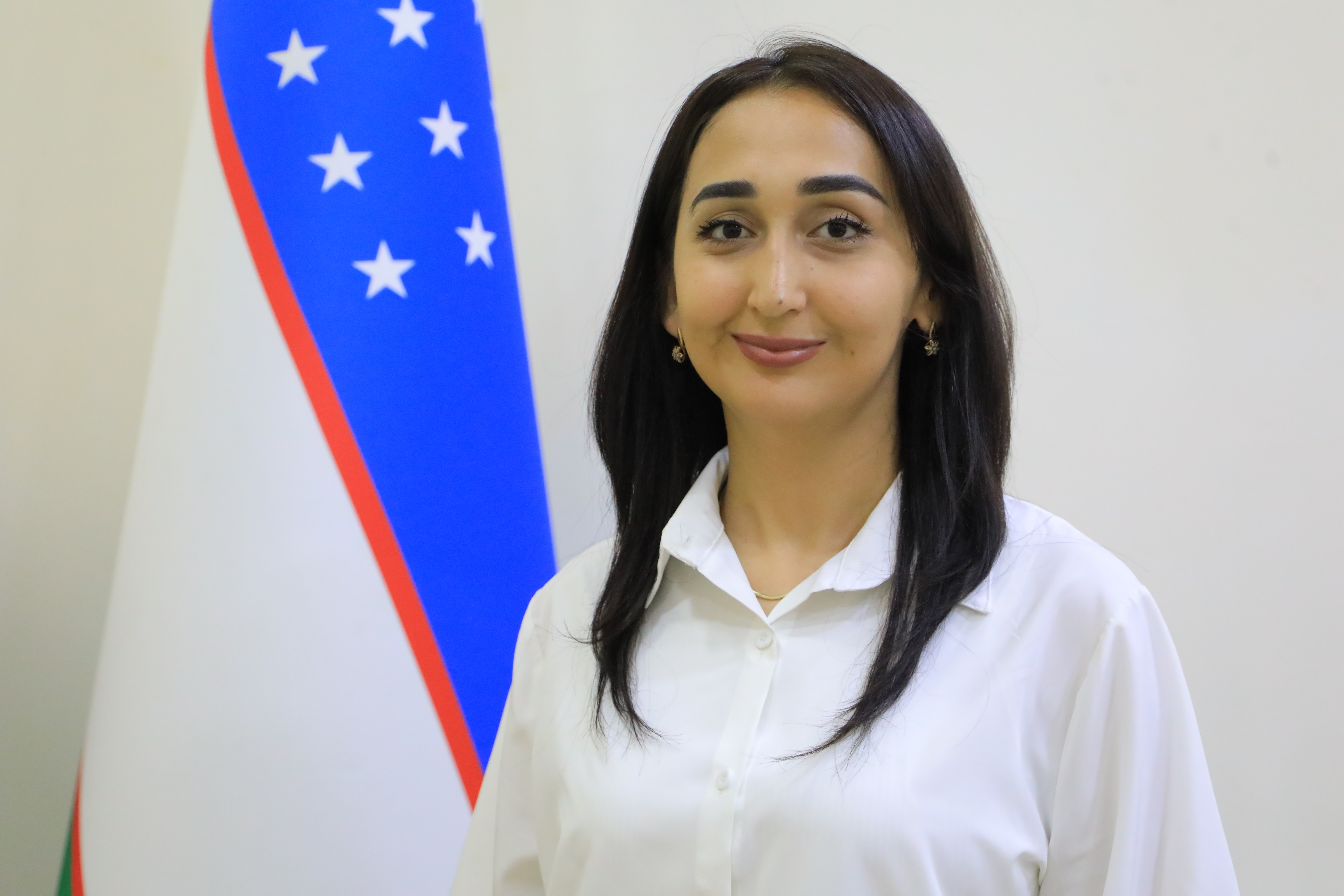
Yusupova Shirinoy Ortig‘ali qizi
Kafedra o‘qituvchisi
- Phone: +998939782120
- Email sh.yusupova@cspi.uz
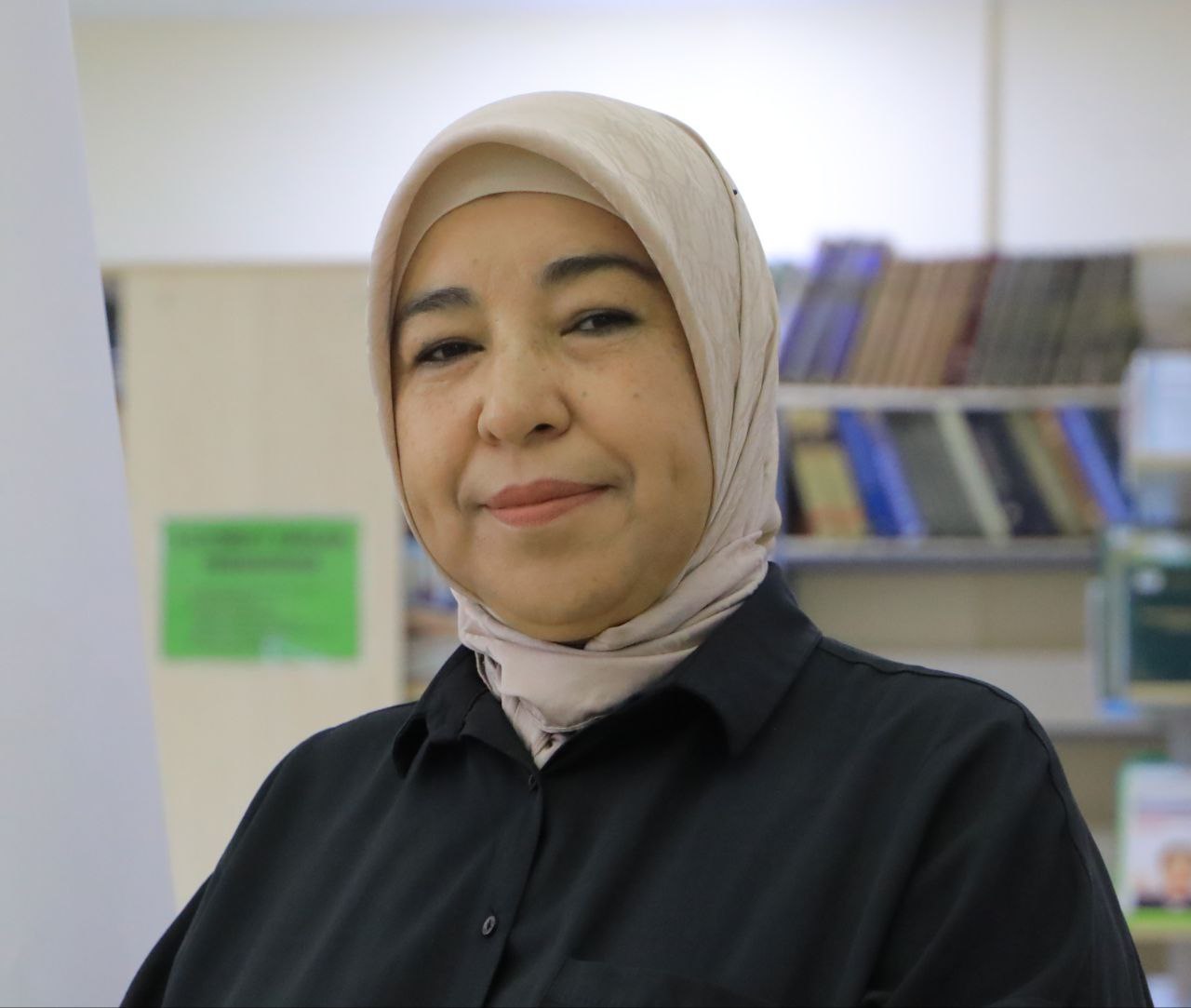
Zuparova Saodat Sharipovna
Kafedra o‘qituvchisi
- Phone: +998999033476
- Email saodatzuparova76@gmail.com
The Department delivers English as a foreign language courses for undergraduate students across study programs.
The Interfaculty Department of Foreign Languages conducts research across several strategic directions. The following areas aim to deliver research that meets modern educational requirements, expand cooperation with national and international scholarly communities, and achieve practical outcomes:
Research in this area focuses on national and world literary heritage. In particular, a comparative analysis of English, Uzbek, and Karakalpak mythologies examines how the mythologeme “human” is reflected across cultures (N.Babadjanova). The poetological genesis of the short story in contemporary Uzbek and English-language prose and its development trends have been studied (A.Baisov). A study of the linguocultural aspect of Gothic-themed lexemes (based on works of the 20th–21st centuries) has also been launched (K.Makhmudov).
Within comparative linguistics, a number of studies are conducted on English and Uzbek. Paremiology, internationalisms, and legal terminology are analyzed from cognitive and pragmatic perspectives, including translation issues (D.Otajonova, E.Murodova, G.Maxamatkhujaeva, M.Khonsaidaova, R.Tenelbaev).
Research targets the formation of students’ communicative and creative skills. By applying innovative and creative approaches in the classroom, students’ independent thinking is fostered (S.Samadova, F.Orazova, S.Zuparova, O.Hamrakulova).
Developing intercultural communication competence and promoting universal values are key focuses of the department; numerous studies are conducted based on world literature in the context of national values and moral education (K.Makhmudov, R.Usmonova).
These directions strengthen the department’s research capacity and contribute to the development of modern methodologies.
D. Otajonova’s research seminar “Translational features of lexical units in English and Uzbek.”
OpenN. Saitkulova’s research seminar “Technologies for developing students’ academic mobility in pedagogical HEIs (self-directed learning).”
OpenF. Orazova’s research seminar “Developing didactic competences by improving in-class reading and writing (English in non-philological majors).”
OpenG. Khaldarchaeva’s research seminar “Teaching creative thinking via designing creative English tasks.”
OpenF. Djabbarova’s research seminar “Applying a psycholinguistic approach to foreign language education.”
OpenN. Baltaeva’s research seminar “Improving methods to expand students’ vocabulary (comparative analysis of synonyms in English and Uzbek).”
OpenM. Khonsaidova’s research seminar “Sociopragmatic study of anthropocentric phraseological units in translated texts.”
OpenE. Murodova’s research seminar “Linguo-cognitive interpretation of the concept ‘Head’ in English and Uzbek paremias.”
OpenK. Makhmudov’s research seminar “Preparing and submitting articles to Web of Science journals; participation in international projects.”
OpenR. Tenelbaev’s research seminar “Modern approaches to teaching English grammar.”
Open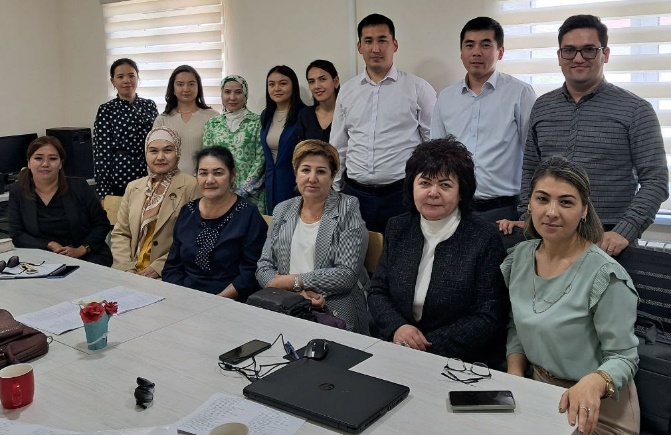
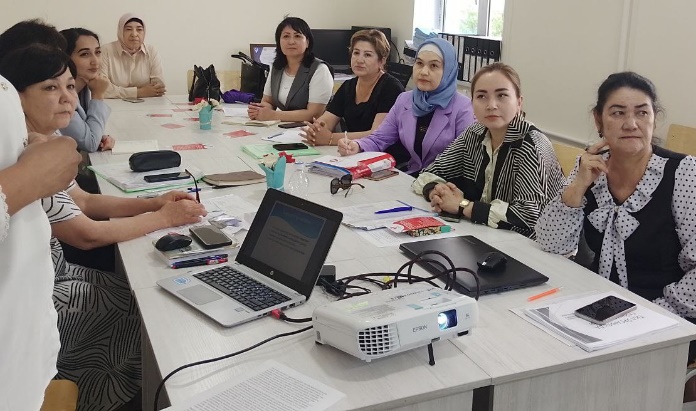
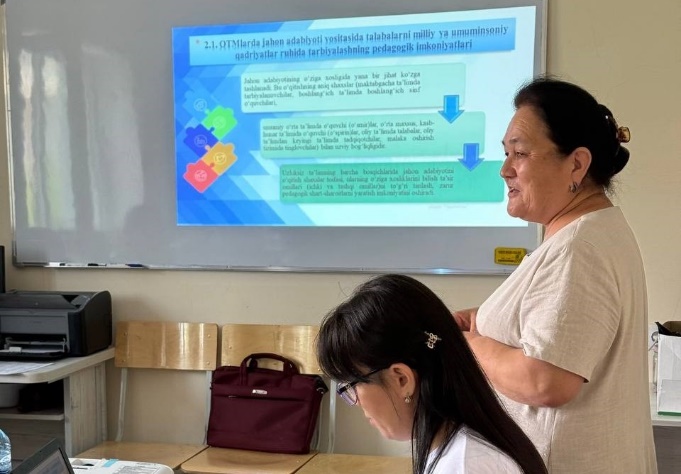
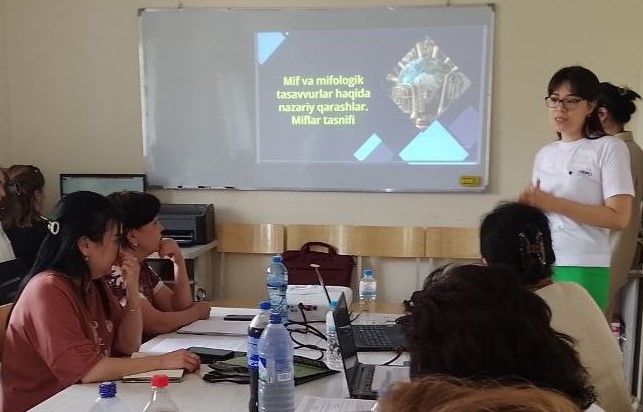
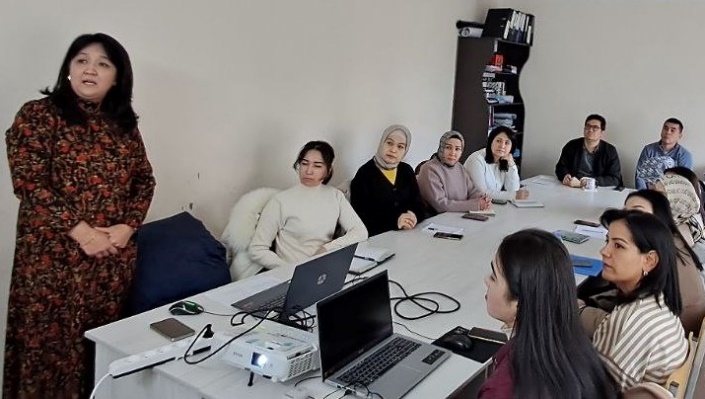
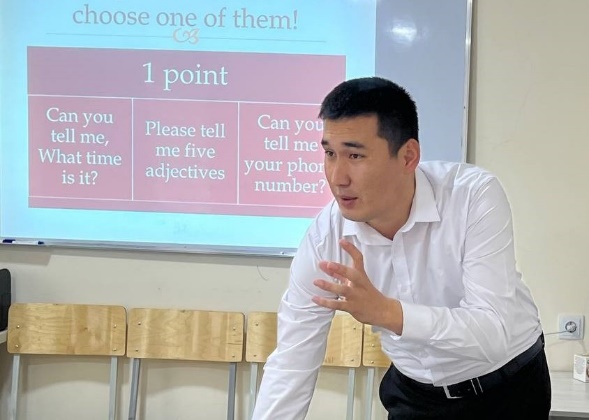
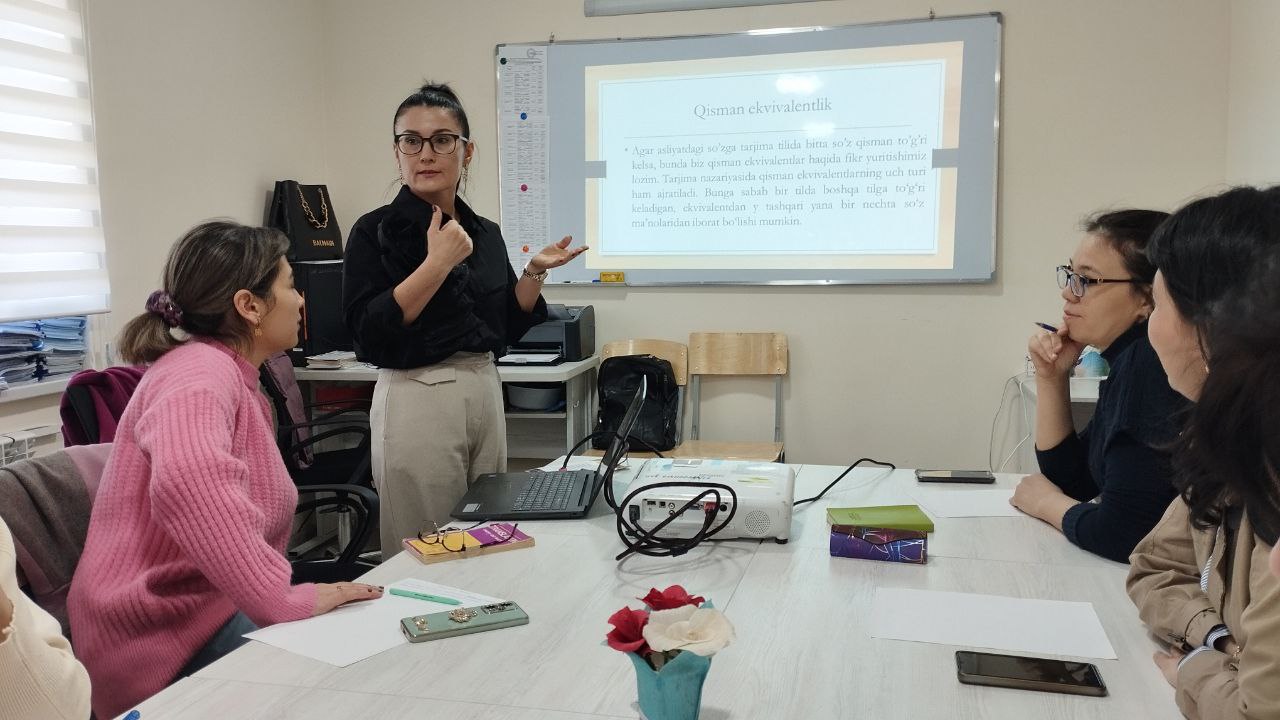
The Interfaculty Department of Foreign Languages relies on internal and external monitoring systems to enhance quality assurance:
- External monitoring. The quality of education is regularly analyzed through the university’s Quality Control Working Group platform (link). The Quality Control Commission within the Faculty of Tourism continuously monitors the assessment system and the educational process.
- Internal monitoring. Internal control is carried out by the designated responsible teacher. At department meetings, regular reports (link) are presented and shortcomings in the educational process along with improvement measures are discussed.
The student assessment system is detailed in the department’s curricula and is implemented within the credit-module system.
- Midterm assessment: students take a “Speaking” exam, which evaluates their oral skills. Sample midterm questions
- Final assessment: the final control evaluates the main skills (Grammar & Vocabulary, Listening, Reading, Writing). Sample final questions
According to our curriculum, students should reach level B1 by the end of the first semester and level B2 by the end of the second semester.
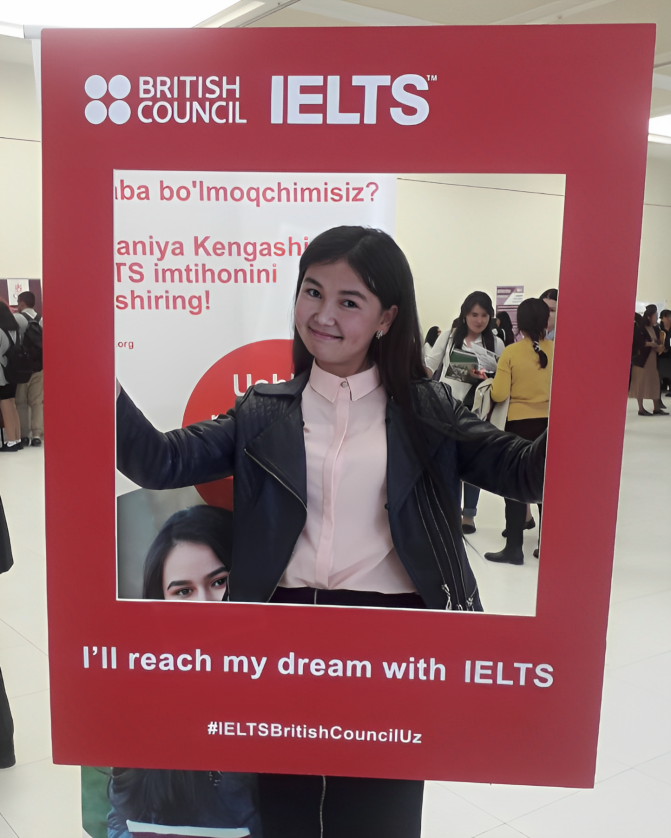
- The course “Foreign Language (English)” is designed in accordance with CEFR requirements (link) and covers topics from A1 to B2.
- This system ensures learning aligned with internationally recognized assessment standards, helping students prepare for the National Certificate, IELTS, TOEFL, and similar certifications.
To ensure transparency in the assessment process, a feedback mechanism has been established.
- Appeal process: within 24 hours after the final results are announced, students can apply to the department’s appeal commission (link).
- Ongoing feedback: surveys and analytical reports are conducted regularly, and submissions are reviewed (link). Based on the results, measures are developed to improve the educational process.
Faculty members regularly deliver seminars and master classes for teachers and students. These events promote modern linguodidactic approaches, apply innovative methods of foreign language teaching, and aim to improve education quality.
Consultations and trainings on English teaching methodology are regularly organized in partner schools and vocational schools, contributing to teacher upskilling and the development of students’ English proficiency.
Within the partnership, master classes and practical sessions are conducted to improve students’ language proficiency and provide guidance on preparing for international assessment systems.
The department plans to implement new projects and events to further broaden local cooperation and integrate advanced teaching methods into the educational process.
Cooperation with UPSI has been established; faculty members regularly participate in scientific and academic exchange programs. Master classes and seminars are organized with the participation of foreign professors.
Within cooperation with UPI, a bilateral agreement has been signed. The UPI delegation visited our university and meetings were held to advance cooperation. Our delegation visited UPI and studied its education system. Projects such as “Research Methodology” and “Guest Lecturer” are being implemented.
Clubs aimed at deepening students’ English proficiency operate under the department. Through these clubs, students:
- can participate in interactive language-learning sessions;
- gain opportunities to develop practical speaking skills and improve their language proficiency;
- can prepare for obtaining international certificates.
Within these clubs, debates, competitions, and seminars are held, providing a real environment to develop foreign language skills.
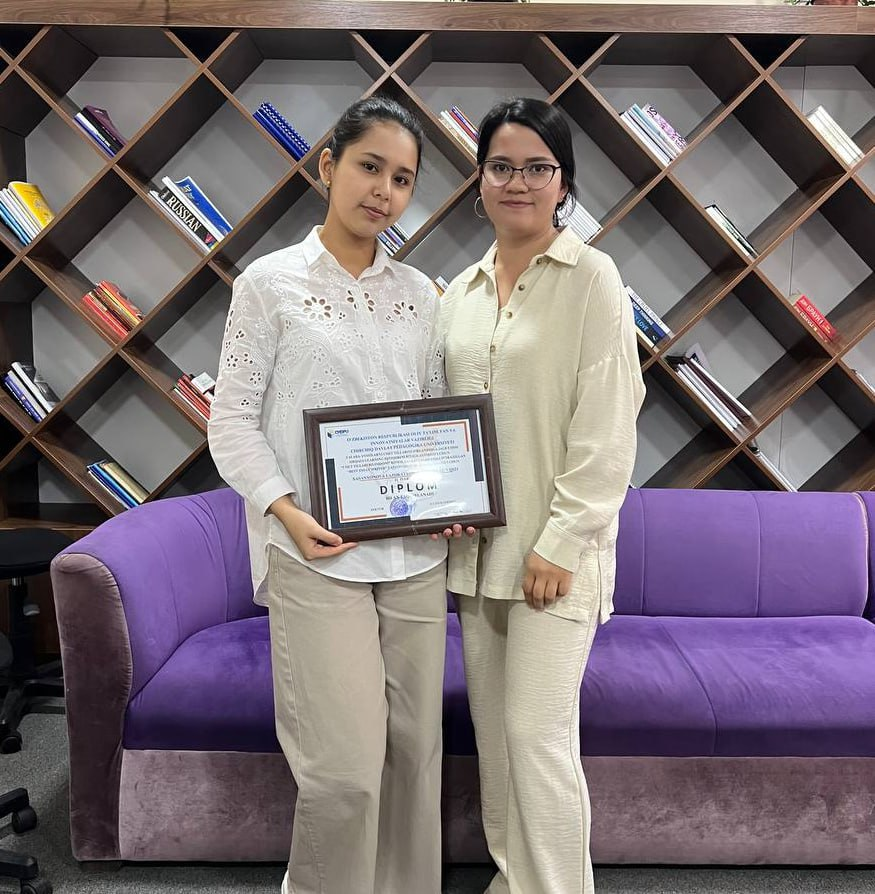
Individual learning activities are organized at a high level. Students can submit an application via the link below to start their research and collaborate with department faculty on scholarly work.
Faculty members have developed special “research tablets” to support students and researchers in an individual learning environment. Students may participate in scientific conferences and projects with their own articles, research, and innovative ideas.
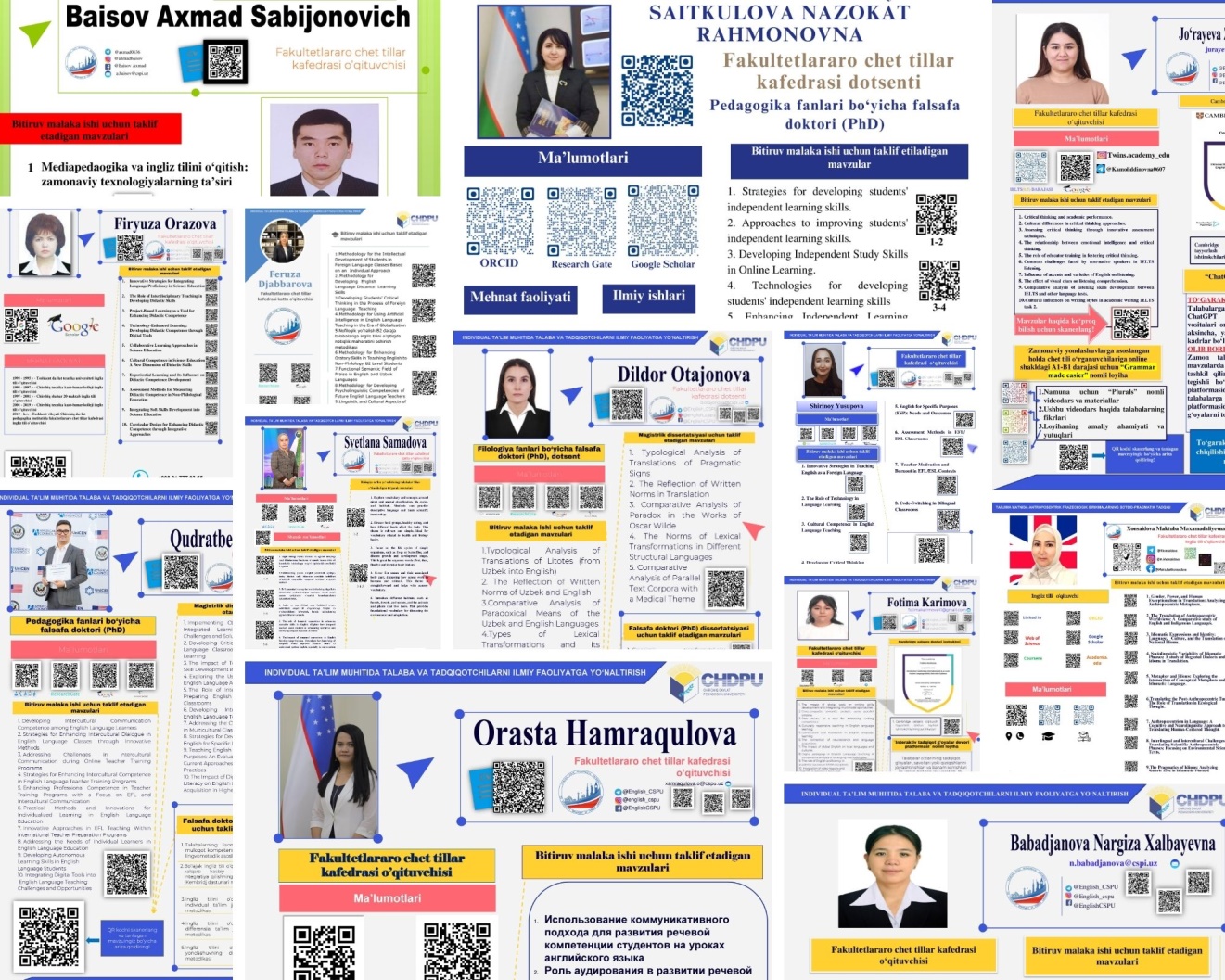
Students who have achieved B2 level and above are directed to Cambridge professional development programs. During this process, they develop teaching skills based on international methodologies.
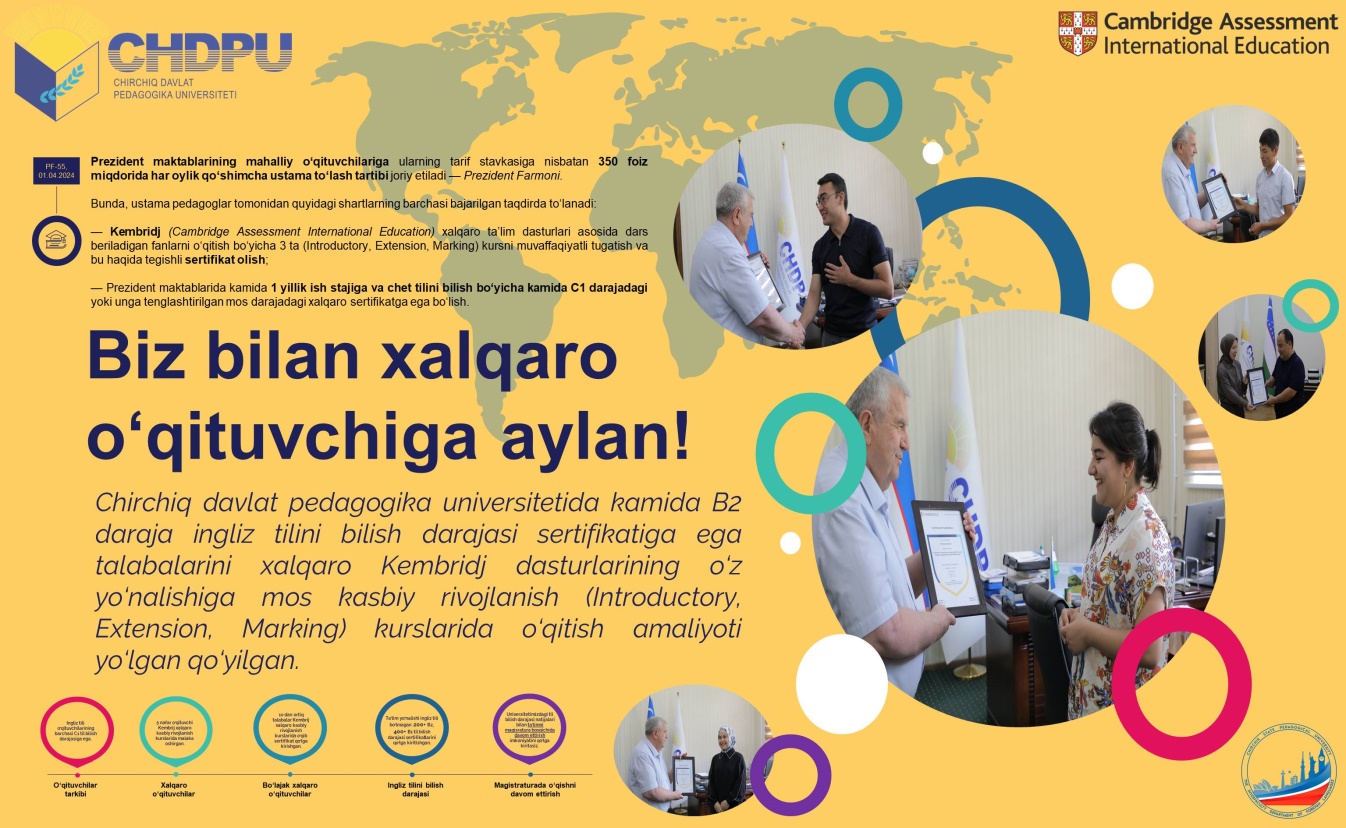
Various competitions and projects are launched to support students’ social engagement and creative growth.
- “Vatan taraqqiyotiga mening hissam” — a patriotic cultural event (link);
- “Bahor she’riyat fasli” — events in student dormitories (link);
- “Speaking Marathon” — a marathon to develop students’ speaking skills (link);
- “Best Essay Writer” — best essay competition (link);
- “Chet tillari bilimdoni” — a competition to test English knowledge (link);
- Events based on national holidays (link) and values (link).
- 04 Dec, 2025
- Announcements
CSPU Representative Participated in the Global Forum on Rege...
Chirchik State Pedagogical University was represented at the forum by Kudratbek Makhmudov, Associate...
Read More